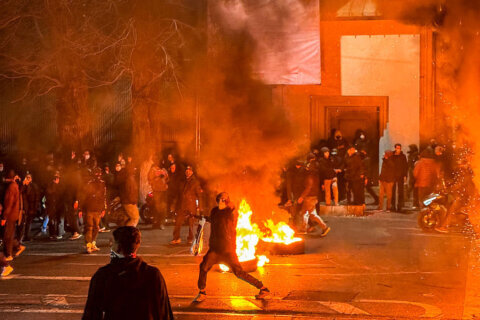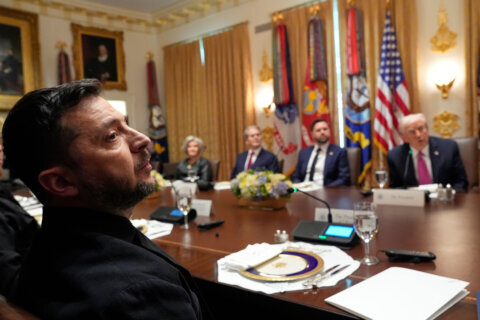WASHINGTON — Four Americans being detained in Iran could possibly be the beneficiaries of last week’s historic nuclear negotiations and deal.
“We believe the deal represents just the beginning,” said David Levinson, son of former FBI agent Robert Levinson, held in Iran since 2007.
“Now, we feel my father can now be a priority of conversation,” the younger Levinson told WTOP.
Secretary of State John Kerry confirmed diplomatic channels are being explored. On July 17, he said on MSNBC’s Morning Joe program that numerous conversations have taken place with Iranian officials about the fate of the hostages.
“In fact,” said Kerry, “it was the last conversation that I had with the foreign minister at the Vienna Center. Right before we went out publicly, I talked to him the last time about that. We remain very, very hopeful that Iran will make a decision to do the right thing and to return those citizens to the United States. And we are consistently, constantly, even now, continuing to work on that.”
David Levinson says the State Department has been reporting its progress back to the family: “We’ve been in close contact with the State Department every step of the way in this process.”
Three other American citizens are in custody in Iran — former Marine Amir Hekmati, Washington Post Iran Bureau Chief Jason Rezaian and Idaho pastor Saeed Abedini. It’s unclear what level of communication they’ve had with the U.S. government.
Abedini, 34, and Hekmati, 31, were captured separately in 2012; Rezaian, 39, was arrested in July 2014. Abedini’s wife, Nagmeh, told Reuters the release of the hostages should have preceded the nuclear deal. She said she met President Barack Obama this January and asked him not to approve a deal before he was freed.
But against the backdrop of the negotiations, at a White House news conference on July 14, Obama said essentially the negotiations needed to be pursued separately, not allowing Iran to use the hostages as leverage.
“Think about the logic that creates — suddenly Iran realizes suddenly we can get additional concessions out of the Americans by holding these individuals.”
The Obama administration has used foreign partners in its quest to keep abreast of the hostages, and a former Swiss ambassador says communication with the Iranian government on behalf of the U.S. regarding the hostages has been constant.
Robert Levinson’s case is a clear example. In December 2011, Livia Leu Agosti, Switzerland’s ambassador to Iran at the time, told WTOP she had made inquiries on behalf of Levinson.
“I have been following his case for a long time. … We’re hopeful that we can bring it up. Last year (2010), the (Iranian) president said he would look into it,” said Agosti.
It is not clear what steps the administration will take next in pursuit of the release of the four Americans, but David Levinson suggests that there is nothing standing in the way of the release of his father. “As long as the U.S. and Iranian governments are in dialogue my father’s case can be resolved. We know that the U.S. and the Iranian governments have the capability to make that happen.”








